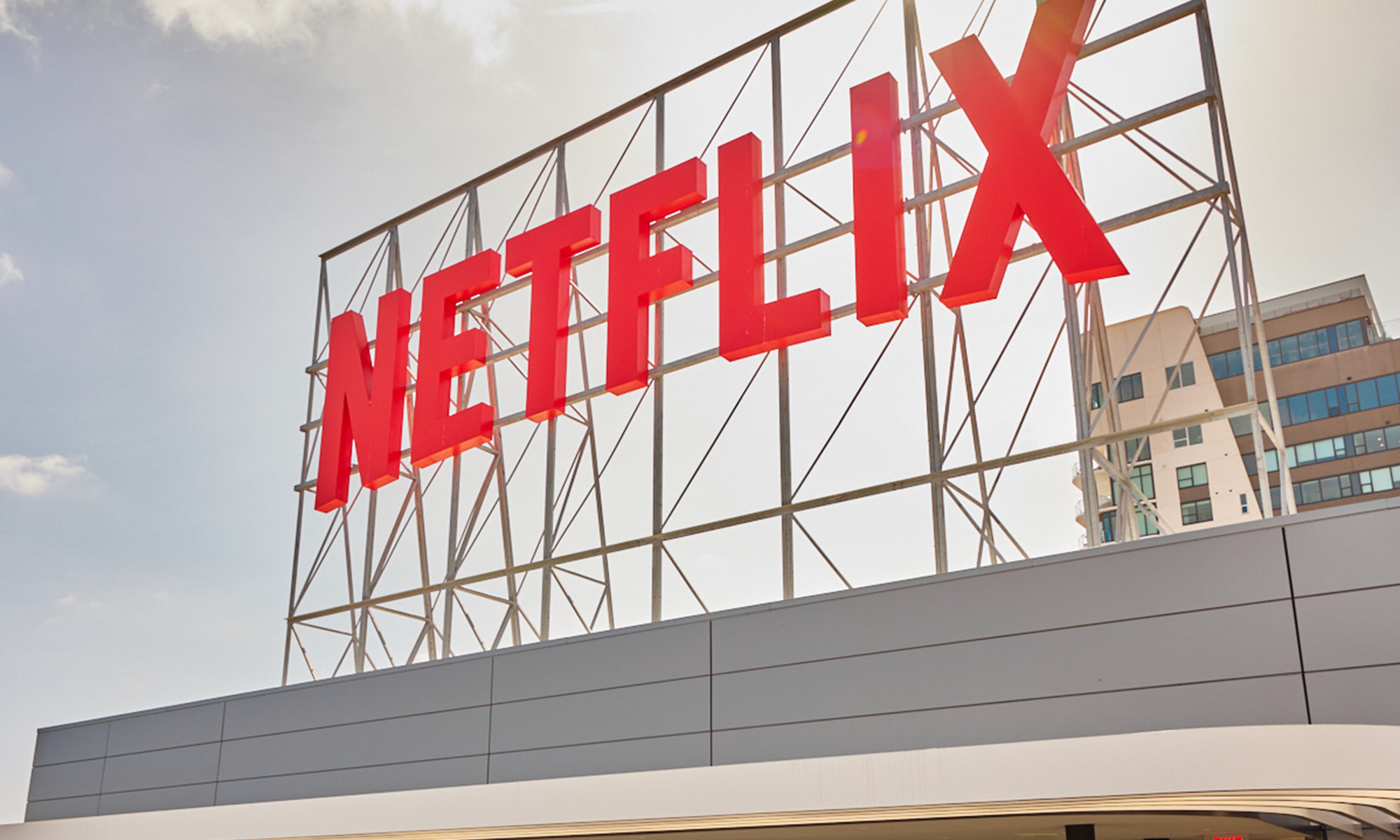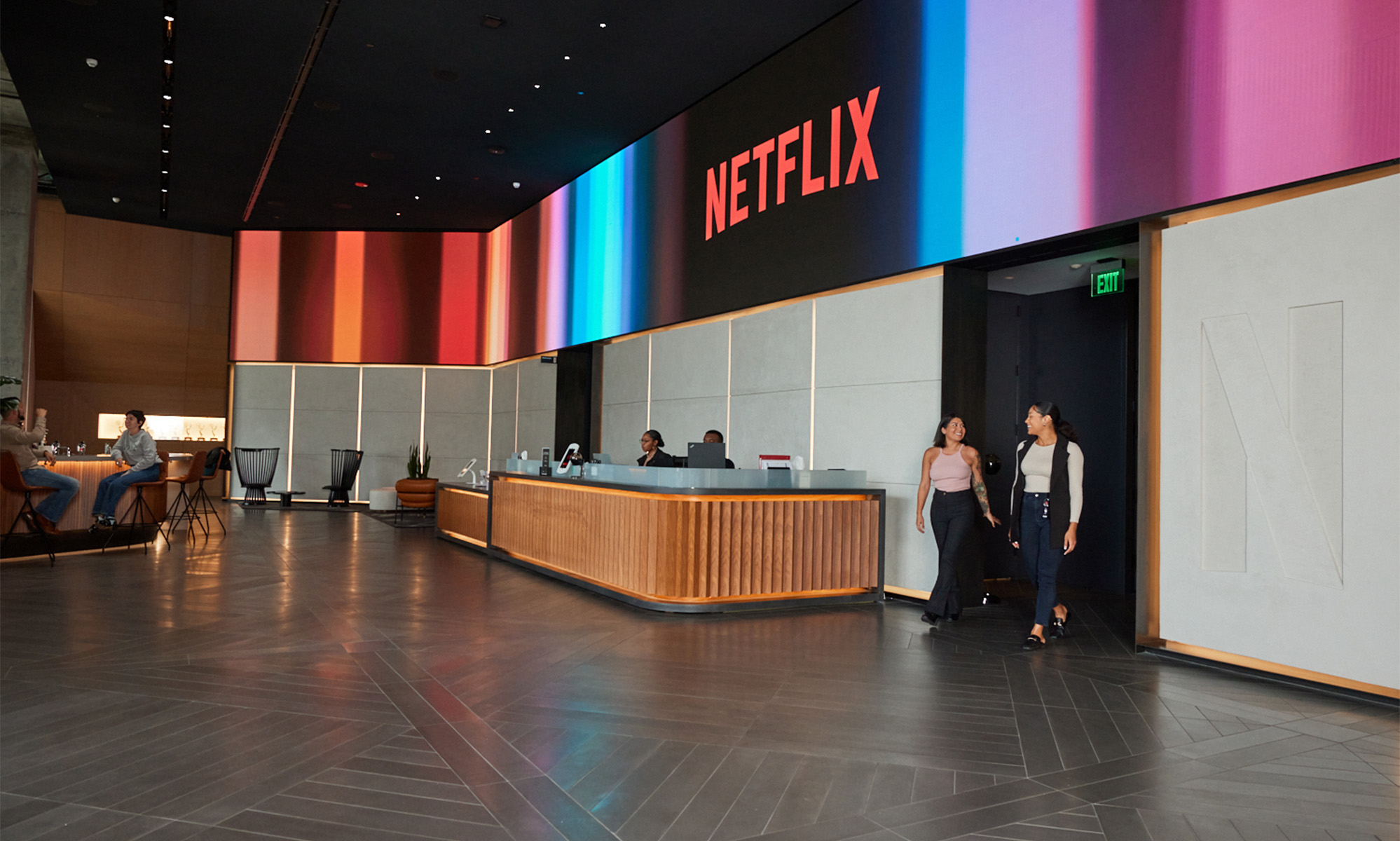China's novel coronavirus has Wall Street running scared, and for good reason. The virus -- now designated COVID-19 -- has done a number on a number of stocks. It's proving especially pernicious for businesses that could potentially bring people into regular contact with other, possibly-infected, persons.
Case in point: Since the coronavirus was first discovered, shares of cruise operators Royal Caribbean and Carnival Cruise are down 16% and 18%, respectively, their shares damaged by news stories of passengers stranded on board as COVID-19 raged below-decks.
So how do you isolate your own portfolio from such concerns? Here's a modest suggestion: Buy stocks that build their business by enabling humans to interact without physical contact -- stocks such as Netflix (NFLX 0.84%), DocuSign (DOCU 1.01%), and Twitter (TWTR +0.00%).
Here's why I believe all three are good bets.

Image source: Getty Images.
1. Netflix
Netflix doesn't do business in China, which tells you right away that it's unlikely to be hurt by the coronavirus. More importantly, though, Netflix does operate in 190 of the world's 194 other countries -- pretty much all of which are freaking out over the coronavirus right now. In addition to China itself, the epicenter of this health crisis, 29 other countries had reported coronavirus infections within their borders as of Feb. 19, and new cases are being reported every day.
As a business that does best when its customers stay home, avoid human contact, and stream their entertainment privately (as people may now be more inclined to do), Netflix's business looks particularly immune to damage from the coronavirus. (In fact, Netflix might even see its usage increase as folks "cocoon" at home and wait for infections to peak and begin to subside.)
How long that will take is hard to say. After leaping higher last week on a change in how infections are tabulated, coronavirus infections continued to climb pretty steadily, recently passing 74,000 cases within China and about 1,100 abroad. On the plus side, one month after the virus first emerged, more than 17,000 persons who once suffered from it have already fully recovered -- so the end could be in sight.
In the meantime, Netflix's business is growing healthily despite the contagion. Revenue last quarter grew 31% year over year, and profits grew 10 times as fast.
2. DocuSign
Another company with a business designed to minimize human contact -- and avoid fears of the same -- is DocuSign. Probably the best-known name in "e-signatures," DocuSign permits people to authenticate documents with electronic signatures over the internet, without having to meet in person, exchange papers, put pen to ink, or even (shudder!) shake hands on a contract.
Fast-growing DocuSign saw its sales grow 14% last quarter, with paying customers up 24% year over year to well over 500,000. Although the company is not technically "profitable" according to GAAP accounting standards, DocuSign has been generating positive -- and growing -- free cash flow for the past three years, and posted better than $50 million in cash profits over the past 12 months, according to data from S&P Global Market Intelligence. Analysts who follow the stock predict that profitability could grow in excess of 58% annually over the next five years.
With a business model built on remote communication and remote meetings of minds, DocuSign has little to fear from a virus that requires people to come within six feet of each other to spread.
3. Twitter
If there's a stock that could have immunity to the effects of the coronavirus -- and could actually benefit from this developing story -- it's surely Twitter.
Homebound and fearful people are going to be spending a lot of time on social media as they avoid public places. Twitter, in particular, has become one of the most important social media sites for tracking news stories these days, including news about the virus.
I can tell you from personal experience that journalists use Twitter both to generate story ideas and to distribute their reporting out to the reading public. Ordinary news consumers, too, are turning to social media for news at an accelerating rate. A 2018 poll by Pew Research revealed that Twitter is among the top three social media sites where U.S. adults seek out news. And among folks already on these sites, Twitter users use the site specifically to seek out news updates more frequently than users of any other social media website, excepting only Reddit.
With increasing usage and increasing engagement among its users, Twitter stock topped $1 billion in revenue in a single quarter for the first time earlier this month, and its "monetizable" Daily Active Users (mDAU) count jumped 21% year over year.
By the way, all of these numbers came in before the coronavirus gave people one more reason to be leery of going out in public and sparked heightened interest in following the progress of COVID-19 from a safe distance. Given this, I would be very surprised if next quarter we see Twitter's numbers go down instead of up.







